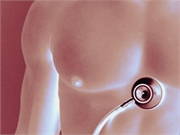High variability measured between people; individual rates change seasonally
WEDNESDAY, Feb. 19, 2020 (HealthDay News) — Resting heart rate (RHR) differs greatly between people, while individual rates are more consistent, according to a study published online Feb. 5 in PLOS ONE.
Giorgio Quer, Ph.D., from the Scripps Research Translational Institute in La Jolla, California, and colleagues measured daily RHR in 92,457 individuals who consistently wore wrist-worn heart-rate trackers for at least 20 hours per day two days per week during at least 35 weeks from March 2016 to February 2018. The authors measured interindividual and intraindividual RHR variability over long- and short-term intervals and then compared RHR values by age, body mass index, sex, and sleep duration.
By analyzing almost 33 million daily RHR measurements, the researchers found that person-to-person RHR was widely variable, ranging from 40 to 109 beats per minute (bpm) among all individuals (mean daily RHR, 65 bpm). Within individuals, RHR values fluctuated an average of 3 bpm and showed small but significant seasonal trends, with minimum RHR values measured in July and maximum values measured in January. The investigators also found that RHR depended on age, sex, body mass index, and average sleep duration; however, these factors, taken together, accounted for no more than 10 percent of total interindividual variability.
“Day-to-day changes in resting heart rate could be the first true, individualized digital vital sign, which is only now possible to measure thanks to wearable sensor technologies,” the authors said in a statement. “We analyzed the extent of inter- and intraindividual changes in resting heart rate over a prolonged period of time, showing distinct patterns of variation according to age and sex, time of the year, average sleep duration and body mass index. These variations in resting heart rate may allow for the identification of early unexpected changes in an individuals’ health.”
Copyright © 2020 HealthDay. All rights reserved.








